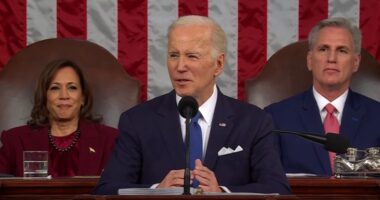
McKinsey & Co.’s partners voted to replace Kevin Sneader as its global managing partner amid fallout from a series of crises during his three-year tenure leading the consulting firm, people familiar with the matter said.
The decision—the result of a staggered voting process McKinsey’s approximately 650 senior partners undertake every three years to choose or reconfirm the firm’s global managing partner—leaves two other senior partners in the running to succeed Mr. Sneader: Bob Sternfels and Sven Smit, senior partners in McKinsey’s San Francisco and Amsterdam offices respectively.
Mr. Sneader, a Scot who became global managing partner three years ago in a similar vote, is the first McKinsey leader in recent decades not to win a second term, after failing to garner enough support in a first round of voting to move to the final round.
Mr. Sneader’s letter to employees about the opioid settlement was noticeably blunt in criticizing the firm’s behavior. He said the firm fell short of its standards and “did not adequately acknowledge the epidemic unfolding in our communities or the terrible impact of opioid misuse and addiction, and for that I am deeply sorry.”
Some partners felt that language was too strong and its advice to clients was legal and given in good faith, people familiar with the matter said.
The firm has also drawn scrutiny over its work with some autocratic foreign governments, including Saudi Arabia, and in December came to a settlement with Justice Department watchdogs over how the firm discloses potential conflicts of interest. In both the opioid and disclosure settlements, McKinsey admitted no wrongdoing.
Some partners didn’t like the changes that Mr. Sneader oversaw for approval of new clients and his settlement with U.S. state attorneys general for the firm’s work for opioid makers, people familiar with the matter said. While the changes were approved by partners, some were frustrated by a loss of independence they had and by Mr. Sneader’s apology over the firm’s work.
In the past, there was relatively little oversight over partners and the work they did. Under Mr. Sneader, the firm’s top partners had to approve controversial new clients. This made it harder for non-U.S. partners to take on some clients and was seen as a centralization of power away from partners.
As part of the firm’s new standards for clients, McKinsey said it would not serve defense, intelligence, justice or policing institutions in nondemocratic countries. That has put its partners in countries like Saudi Arabia in difficult positions because even if they work in areas such as economic development, all government entities ultimately report to the country’s top leaders.
McKinsey played a central role in the rise of Saudi Crown Prince Mohammed bin Salman. In 2015, Prince Mohammed was the son of the newly crowned king and didn’t have a direct route to the throne. His father, King Salman, put the prince in charge of economic reforms, and McKinsey was involved in coming up with a strategy to shift the kingdom’s economy away from its reliance on oil.
In late 2015 the firm’s research arm, the McKinsey Global Institute, put out a public report called “Saudi Arabia Beyond Oil” that said, “We see a real opportunity for the Kingdom to inject new dynamism into the economy through a productivity- and investment-led transformation.”
The report gave McKinsey’s imprimatur to the strategy Prince Mohammed was pursuing at a time when he was looking for approval from foreign business and political leaders to help legitimize his claim to a bigger role in running the kingdom. His father, the king, gave him added responsibility and in 2017 the prince imprisoned his cousin, who was then crown prince, and took the title himself. Since then, the crown prince, known as MBS, has been the kingdom’s day-to-day ruler. He has presided over economic reforms, as well as a brutal bombing campaign in Yemen that has led to a humanitarian crisis, the lockups of many of his critics, and a team of men who murdered dissident writer Jamal Khashoggi in 2018.
Through that time, McKinsey worked on various initiatives for the prince. After it prepared a report that highlighted criticism of the prince’s policies by influential Twitter users, the government arrested family members of one of the critics, the New York Times reported.
The firm’s recent opioid settlement for nearly $600 million also drew opposition from some non-U.S. partners who were more willing to fight, people familiar with the matter said. Mr. Sneader tried to convince them that this would drag out the case and subject the firm to harsh criticism for its role in the crisis.
The power shift highlights the sprawling nature of the firm and its leadership structure. As global managing partner, Mr. Sneader was more of a first among equals than a CEO, and his overhauls were approved by senior partners. But when he was up for re-election for another three-year term, there were enough dissenters to keep him off the final ballot.
McKinsey senior partners will decide on whether Mr. Sternfels or Mr. Smit will succeed Mr. Sneader in a final voting round, which is expected to take place in March, people close to the matter said. Mr. Sternfels is seen as a protégé of Dominic Barton, who ran the firm from 2009 to 2018 and was credited with accelerating McKinsey’s growth.
As part of the process, senior partners nominate several candidates, then vote in a first round. The two candidates who receive the most votes go on to a final round.
Write to Vanessa Fuhrmans at [email protected]
Copyright ©2020 Dow Jones & Company, Inc. All Rights Reserved. 87990cbe856818d5eddac44c7b1cdeb8















